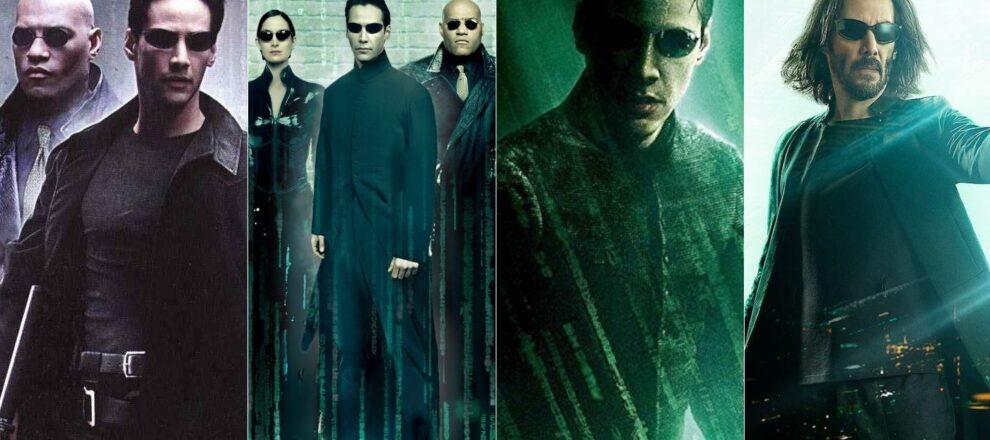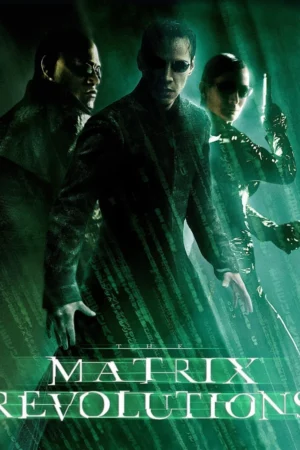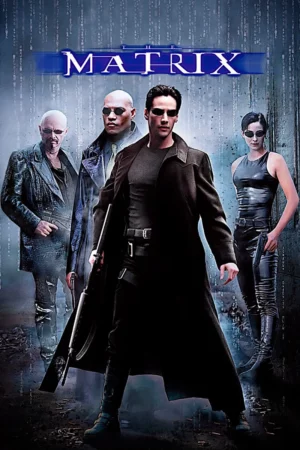The Matrix film series is an iconic and groundbreaking cinematic journey that has left a lasting impact on both the science fiction genre and popular culture. With a combination of revolutionary special effects, complex philosophical themes, and Keanu Reeves’ legendary portrayal of Neo, The Matrix movies have carved a place for themselves in film history. In this article, we’ll take a deep dive into all four movies in the Matrix film series, exploring their impact, key themes, and the return of Neo in The Matrix Resurrections.
Table of Contents
The Matrix movies
The Matrix (1999)
The journey begins with the release of “The Matrix” in 1999, directed by the Wachowski siblings. This film introduced us to the dystopian world where machines have enslaved humanity by trapping them in a simulated reality. Keanu Reeves, playing the iconic role of Neo, discovers his destiny as “The One” and joins the resistance to break free from the illusory world of the Matrix.
The Matrix Reloaded (2003) and The Matrix Revolutions (2003)
The story continues with “The Matrix Reloaded” and “The Matrix Revolutions,” released in the same year. These two films were both shot back-to-back, offering a seamless continuation of the narrative. “Reloaded” delves deeper into Neo’s powers, the history of the Matrix, and introduces new characters like the Keymaker. “Revolutions” concludes the epic battle between humanity and the machines as Neo and his allies make their final stand in a visually stunning showdown.
The Matrix Resurrections (2021)
After nearly two decades since the original trilogy concluded, “The Matrix Resurrections” hit the big screen in 2021. This long-awaited sequel brings Keanu Reeves back as Neo, joined by Carrie-Anne Moss as Trinity. The film reimagines the world of the Matrix, exploring themes of nostalgia and the impact of technology on our lives. “Resurrections” cleverly questions the nature of reality while delivering exhilarating action sequences.
Key Themes Across the Matrix Series
- Reality vs. Illusion: The core theme of the series is the distinction between the simulated reality of the Matrix and the harsh truth of the real world. This existential exploration remains a central element throughout all four movies.
- Messiah Complex: The figure of “The One,” Neo, plays a significant role in the films as he’s prophesized to lead humanity to salvation. This theme of a savior and messiah complex is a recurring motif.
- Technology and Control: The Matrix movies scrutinize the relationship between humanity, technology, and control. The machines use technology to subdue humans, raising questions about the potential dangers of a technologically driven future.
- Philosophical Depth: The Matrix series isn’t just action-packed; it delves into philosophical concepts, particularly drawing from Plato’s Allegory of the Cave, Descartes’ “I think, therefore I am,” and Baudrillard’s simulation theory.
Conclusion
The Matrix movies have left an indelible mark on the world of cinema. The series not only pioneered cutting-edge special effects but also challenged the boundaries of storytelling within the science fiction genre. With the release of “The Matrix Resurrections,” the franchise proved its lasting relevance and the enduring appeal of the cyberpunk themes it explores. Whether you’re a long-time fan or new to the world of the Matrix, these films are a must-watch for their captivating narrative, mind-bending concepts, and breathtaking action sequences. So, take the red pill and embark on this thought-provoking journey through The Matrix movies.









